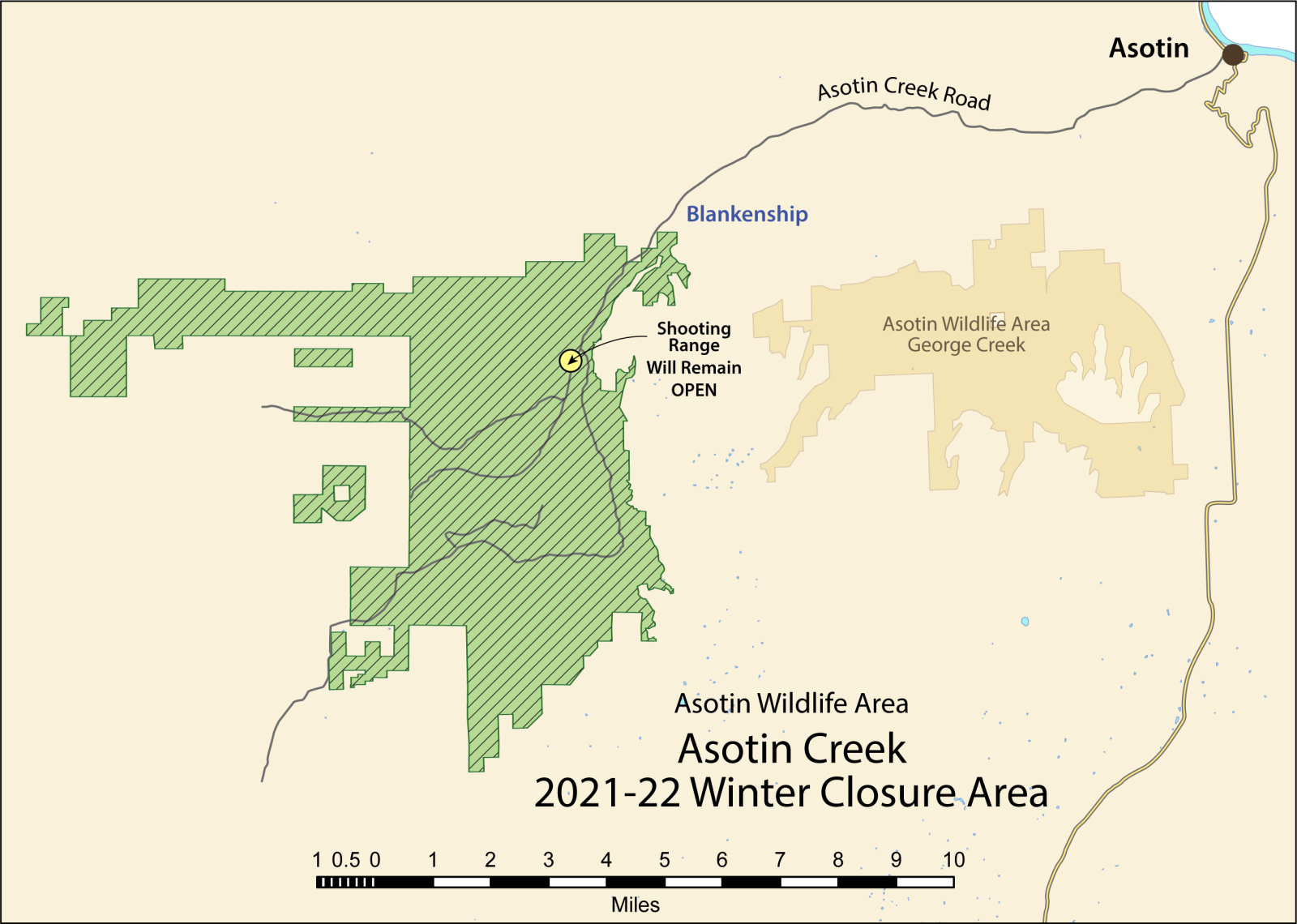ARCHIVED NEWS RELEASE
This document is provided for archival purposes only. Archived documents
do not reflect current WDFW regulations or policy and may contain factual
inaccuracies.
News release Dec. 3, 2021
Kevin Robinette, 509-953-5180
Staci Lehman, Public Affairs, 509-710-4511
SPOKANE – A large area of the Asotin Creek Wildlife Area in southeast Washington’s Asotin County is closing for the winter to protect elk that lost habitat to the Lick Creek wildfire this summer, as well as to protect private crops from elk feeding on them.
Approximately 20,000 acres of the Asotin Creek and Weatherly units of the wildlife area, managed by the Washington Department of Fish and Wildlife (WDFW), closes Dec.15 to all human entry, both by vehicle and walk-in access. The wildlife area’s shooting range will remain open.
With 95% of elk winter range in the area burnt by wildfires this past summer, WDFW staff plan to feed the animals this winter, in a one-time only effort to get them through the winter.
“That will reduce the chances of elk needing to move off of public lands and onto private agricultural lands,” said district wildlife biologist Paul Wik. “New plant growth in spring is expected to provide sufficient food for future winters as wildfires often improve elk habitat once regrowth starts.”
The land closure will be in effect until April 1, as elk are most vulnerable at the end of winter, having used up much of their fat reserves. Signs will be posted to notify recreationists of the closure and eco-blocks will be placed across the South Fork Asotin Creek Road near the Campbell Grade intersection to keep vehicles out.
“While county roads are closed in this area annually, we understand this closure will be an inconvenience to winter and early spring users of the North Fork of the Asotin Creek Trail as well as early season antler hunters and hikers,” said WDFW’s Region 1 wildlife program manager Kevin Robinette. “We hope people will be willing to help both these animals and area farmers by staying out of the closed area.”
WDFW works to preserve, protect, and perpetuate fish, wildlife and ecosystems while providing sustainable fish and wildlife recreational and commercial opportunities.
